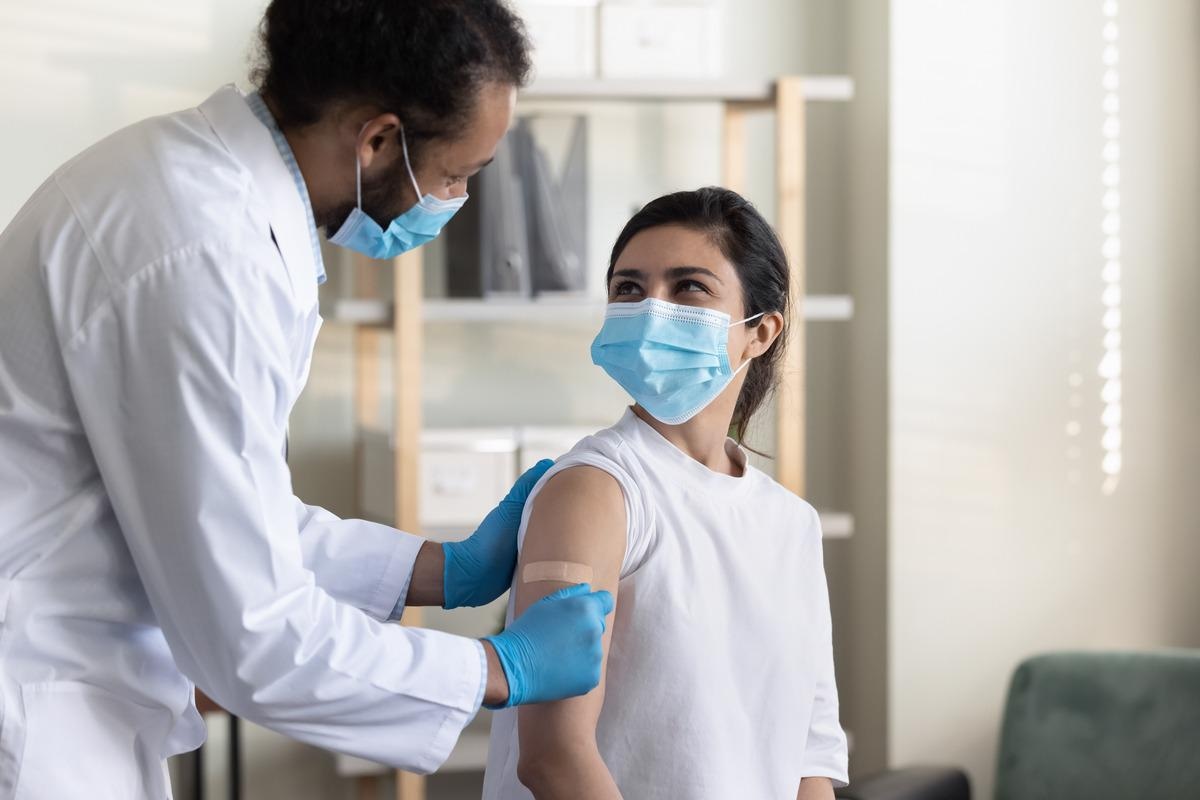Before the coronavirus disease 2019 (COVID-19) pandemic, the effectiveness of mask-wearing in preventing the spread of pathogenic respiratory infections was debatable due to a lack of reliable evidence. The scientific data on the effectiveness of mask-wearing has grown during the pandemic. Data currently shows that wearing a mask in public spaces is an effective nonpharmacologic strategy for reducing the transmission of this virus, particularly as source control to limit the spread from infected people.
 Study: Self-Reported Mask Use in SARS-CoV-2 Vaccinated and Unvaccinated Populations. Image Credit: fizkes/Shutterstock
Study: Self-Reported Mask Use in SARS-CoV-2 Vaccinated and Unvaccinated Populations. Image Credit: fizkes/Shutterstock

 This news article was a review of a preliminary scientific report that had not undergone peer-review at the time of publication. Since its initial publication, the scientific report has now been peer reviewed and accepted for publication in a Scientific Journal. Links to the preliminary and peer-reviewed reports are available in the Sources section at the bottom of this article. View Sources
This news article was a review of a preliminary scientific report that had not undergone peer-review at the time of publication. Since its initial publication, the scientific report has now been peer reviewed and accepted for publication in a Scientific Journal. Links to the preliminary and peer-reviewed reports are available in the Sources section at the bottom of this article. View Sources
There has been little data on mask use rates over time based on COVID-19 vaccination status. In a recent study posted on the medRxiv* preprint server, both vaccinated and unvaccinated participants from the COVID-19 Community Research Partnership (CRP) had their mask-wearing habits evaluated.
About the study
The CRP study was carried out from April 2020 to June 2021 and is a prospective, multi-site cohort syndromic COVID-19 surveillance study of participants from ten healthcare settings in the mid-Atlantic and south-eastern USA. Participants were contacted via email or text and provided with surveys regarding their exposure to COVID-19, any COVID-19-related symptoms, and mask use. “Yes,” “No,” or “No interactions” were used to report the participant’s mask use.
The study inclusion criteria consisted of: 18 years or older, enrolled by December 2020, and daily surveys needed to be completed ≥ 5 times a month. In this study, for a participant to be considered vaccinated, they needed to have received at least one dose of vaccine by August 31st, 2021.
Findings
With participants who reported receiving a COVID-19 vaccine, the use of masks throughout non-household encounters was more frequent when compared to those who did not report receiving a vaccine. These results show that the use of masks has changed during the study period, maybe because of the narrative from public health services. The significant drop in May corresponded with revised guidelines on the use of masks for fully vaccinated individuals, despite a previous progressive fall in mask use.
However, a similar decline in the use of masks was also seen in the unvaccinated cohort, showing that this group also relaxed their use of masks, despite the increased risk of infection. Greater transmission linked with the Delta variant and revised guidelines on mask usage in indoor and public places coincided with an upsurge in mask use beginning in late July, which was more prominent in vaccinated persons.
Over a nine-month period, the authors collected prospective data from a large number of geographically diverse participants. However, recruitment, reporting, and response biases restrict these findings as a representation of the population as a whole. This may also reflect the difference in vaccination uptake when the participants are compared to the population as a whole (95% vs. 75%).
These findings show a similar temporal relationship between the wearing of masks and the uptake of vaccination. The participants reported encounters outside the household at a stable rate, which indicates that the views on wearing a mask in this situation changed independently. During weekends and holidays, the use of masks declined for all but was still greater among the vaccinated participants.
Implications
When compared to vaccinated participants, those who were unvaccinated consistently reported reduced rates of mask-wearing while engaging in non-household interactions. There was a substantial decrease in the wearing of masks observed in May, which later increased in July 2021, which coincided with a change in the public health guidance, suggesting a relationship between these two factors. These results highlight the importance of improving the messages and initiatives proposed by public health organizations to encourage and support preventative strategies in the continuing threat of COVID-19

 This news article was a review of a preliminary scientific report that had not undergone peer-review at the time of publication. Since its initial publication, the scientific report has now been peer reviewed and accepted for publication in a Scientific Journal. Links to the preliminary and peer-reviewed reports are available in the Sources section at the bottom of this article. View Sources
This news article was a review of a preliminary scientific report that had not undergone peer-review at the time of publication. Since its initial publication, the scientific report has now been peer reviewed and accepted for publication in a Scientific Journal. Links to the preliminary and peer-reviewed reports are available in the Sources section at the bottom of this article. View Sources
Journal references:
- Preliminary scientific report.
Calamari, L. et al. (2022) "Self-Reported Mask Use in SARS-CoV-2 Vaccinated and Unvaccinated Populations". medRxiv. doi: 10.1101/2022.04.06.22273448. https://www.medrxiv.org/content/10.1101/2022.04.06.22273448v1
- Peer reviewed and published scientific report.
Calamari, Lydia E., Ashley H. Tjaden, Sharon L. Edelstein, William S. Weintraub, Roberto Santos, Michael Gibbs, Johnathan Ward, et al. 2022. “Self-Reported Mask Use among Persons with or without SARS CoV-2 Vaccination —United States, December 2020–August 2021.” Preventive Medicine Reports 28 (August): 101857. https://doi.org/10.1016/j.pmedr.2022.101857. https://www.sciencedirect.com/science/article/pii/S2211335522001644.